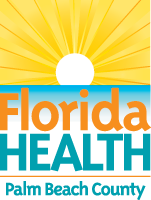It's a New Day in Public Health.
The Florida Department of Health works to protect, promote, and improve the health of all people in Florida through integrated state, county, and community efforts.
Tips for Prevention of Heat Exposure and Exhaustion
July 23, 2015
July 23, 2015
Florida Department of Health Palm Beach County Prevention Tips for Heat Exposure and Exhaustion
PALM BEACH COUNTY, FL - Florida Department of Health in Palm Beach County has an enhanced surveillance system with area hospitals to identify diseases and conditions affecting the community. During the past four weeks there has been a case of heat exhaustion, heat exposure or heat stroke reported every day from at least one of the surveillance hospitals.
“Every day someone in Palm Beach County has reported a form of heat related illness. I would like to remind everyone to slow down, cool down, and drink plenty of fluids,” said Florida Department of Health in Palm Beach County Director, Dr. Alina Alonso. “Recognizing the signs of heat illness and taking the necessary preventive measure can keep a person well and out of the hospital.”
Heat injury can develop after exposure to high temperatures and inadequate or unbalanced replacement of fluids. Those most prone to heat exhaustion are elderly people, people with high blood pressure and people working or exercising in a hot environment. If you do suspect heat injury the following cooling measures are effective:
Drink cool, nonalcoholic beverages, water is the best hydration
Rest in an air-conditioned environment
Take a cool shower, bath or sponge bath
Wear lightweight clothing
Prevent sun burn, it damages the skin's ability to dissipate heat. Wearing sunscreen of 30 spf.
Heat stroke is the most serious heat-related illness. It occurs when the body becomes unable to control its temperature: the body's temperature rises rapidly, the body loses its ability to sweat, and it is unable to cool down. Body temperatures rise to 106°F or higher within 10 to 15 minutes. Heat stroke can cause death or permanent disability if emergency treatment is not provided.
Warning signs vary but may include the following:
An extremely high body temperature (above 103°F)
Red, hot, and dry skin (no sweating)
Rapid, strong pulse
Throbbing headache
Dizziness
Nausea
Heat exhaustion is a milder form of heat-related illness that can develop after several days of exposure to high temperatures and inadequate or unbalanced replacement of fluids.
Warning signs vary but may include the following:
Heavy sweating
Paleness
Muscle Cramps
Tiredness
Weakness
Dizziness
Headache
Nausea or vomiting
Fainting
Skin: may be cool and moist
Pulse rate: fast and weak
Breathing: fast and shallow
More tips and information can be obtained by visiting, flhealthpalmbeach.org or floridahealth.gov.





Connect with DOH